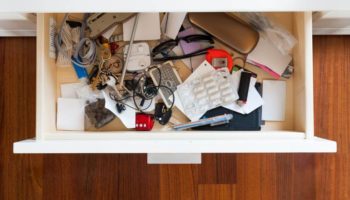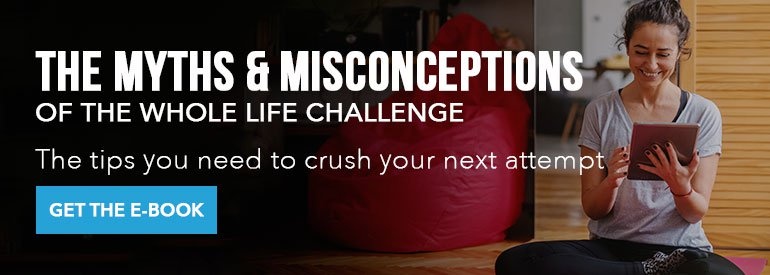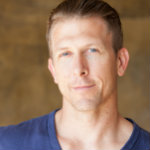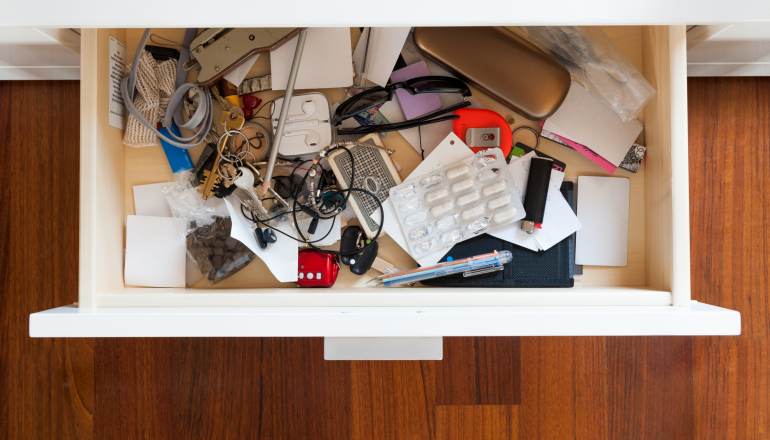 Reading Time: 3 minutes
Reading Time: 3 minutesThis is the suggested Well-Being Practice for week four of the challenge. If this practice does not work for you (for whatever reason), then you can choose from one of our 3 Foundational Well-Being Practices. If you are a veteran player or these three practices are not new to you, then feel free to select from our comprehensive list of Well-Being Practices.
This Week We’re Just Going to Let It Go
Simple Instructions:
- Each day, find an area of your life that needs cleaning and clean it up.
- The space can be physical (like a desk or closet) or virtual (like your email inbox or electronic to-do list).
- You may also pick a large project, like your garage, and tackle a small part of it each day.
- The space does not need to be large and it need not take long to clear up.
Watch this video for an explanation of this Well-Being Practice from Whole Life Challenge co-founders Andy Petranek and Michael Stanwyck.
Why Is Important to Let It Go?
I hate it when I miss out on a good opportunity just because something silly and preventable is out of order. For example, maybe I’ve ignored my house for so long that I finally have no choice but to spend the weekend making it livable again (for me and my family) — but then that means I have to miss out on something great all my friends are doing.
The lesson I’ve learned from this is that taking advantage of the best we get offered in life is much easier if we’ve cleared the runway of obstacles.
Cluttered physical, virtual, or even mental spaces provide unnecessary obstacles to doing what matters to you. Feeling like you’re surrounded by messes or chaos can keep you in “putting out fires” mode — the need to take care of the nagging things right in front of you first.
It helps a lot to have clarity around you. Clarity allows you to make important choices without getting hung up on unimportant ones. Clarity comes from an ability to “discern,” to look at something and say “yes” or “no” and to have the confidence you’re doing the right thing.
Therefore, keeping your living and working spaces straight is a phenomenal practice in staying on top of the little things that need managing so life can move freely all around you. When you’ve cleared your spaces, when you’ve learned how to say yes or no with authority, new paths open up. And maybe they don’t even open so much as you can finally see them.
Waking up or living in an uncluttered world can provide a sense of calm, strength, and spontaneity. Therefore, this week’s Well-Being Practice is not just a practical one of accomplishing tasks — it’s one of practicing your discernment, but also making the space for the bigger, better things to come.
For More on This Practice
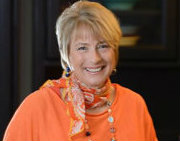 For a deeper dive into the psychology of clutter, listen to Andy’s podcast with “Dorothy the Organizer” of the TV show Hoarders.
For a deeper dive into the psychology of clutter, listen to Andy’s podcast with “Dorothy the Organizer” of the TV show Hoarders.
They discuss the struggles so many of us have with clutter, disorganization, body- and self-image, procrastination, food addiction, and the relationship strain that can occur when partners’ ideas about organization don’t exactly match up.
